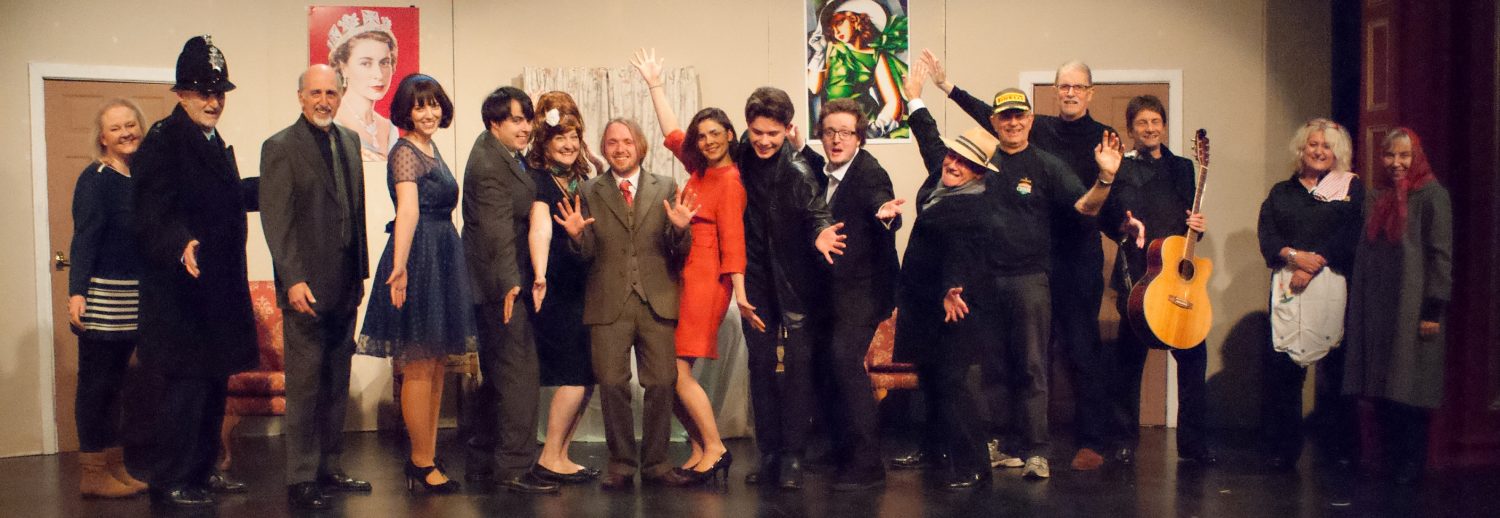By Donna M Day for North West End
The Vicar of Dibley is a beloved sitcom and Bebington Dramatic Society’s production is an affectionate interpretation which shows a good deal of respect to the show’s original cast and crew. Well performed and sweetly funny throughout, this entertaining piece of theatre, directed by Betty Oliver, has a warm and cosy atmosphere.
The play opens with a fun and awkward welcoming announcement from the title vicar, Geraldine (Jane Wing) and the infamous Alice Tinker (Jenny Dewhirst). As Alice fumbles her lines, Geraldine predictably takes over, before the village of Dibley comes to life at a Parish Council meeting chaired by David Horton (David Oliver). The longstanding vicar of the village, Reverend Pottle, has died, and the Council are discussing his replacement. When Geraldine arrives however, the Council members are surprised to see that not only is their new vicar a woman, but her bubbly and enthusiastic presence will change their quiet, pastoral lives forever.
The flirtation between Alice Tinker and Hugo Horton (Che Cullen) is very sweet and Dewhirst and Cullen play off very well against each other, with their strong chemistry creating an adorable and believable love story. Cullen has a great presence, particularly when he argues with his father, David, over his relationship with Alice and Dewhirst is nicely awkward in her role. Owen Newitt (Graham Smith) and Frank Pickle (Brian Sumner) are both very funny. David Oliver’s performance as David Horton is also very good, with a comedic strictness to his portrayal, which slyly nods towards the humour of Council meetings since that Zoom recording went viral. Keith Hill’s portrayal of Jim Trott is also very good, with his performance of the iconic Knowing Me, Knowing You scene being a high point of the piece.
Changes in scenes are mostly managed by lighting different areas of the stage which allows a wide range of locations to be presented without a lot of movement on the set. Some breaks between scenes are however a little too long, considering there are no scene or prop changes to manage, and this can sap the pace a little on occasion. In future performances the musical interludes between scenes could be shortened to maintain the pace of the show.
The set and costumes used in the piece are very good, with some of Wing’s outfits being particularly lovely. Imaginative use of the theatre for wedding scenes is clever and adds a number of fun touches to the play. Wing is warm and animated in the title role and is creates cohesion and unity between the whole cast.
The Vicar of Dibley is a fun show with lots of nice awkward humour. The drama of forbidden love and David’s attempts to rid the village of the vicar keep things interesting and lead to some genuinely poignant scenes at the end of the play.
